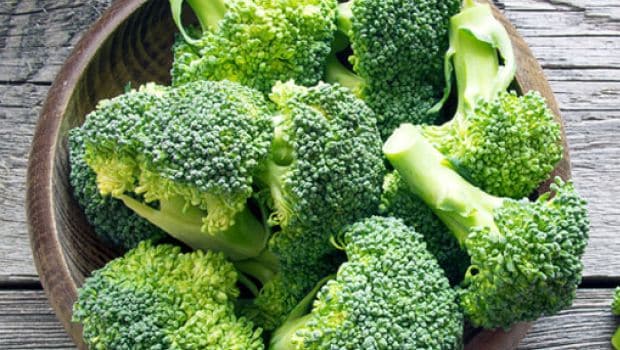Each 10 grams per day higher in cruciferous vegetable intake was associated with 0.8 percent lower average carotid artery wall thickness.

Broccoli may lower heart disease risk in the elderly
HIGHLIGHTS
- Eating cruciferous 3 times per day can prevent hardening of neck arteries
- It could lower the risk of heart disease in women
- Cruciferous vegetables include broccoli, cauliflower, cabbage and sprouts
Eating cruciferous vegetables including broccoli, cauliflower, cabbage and sprouts three or more times per day can prevent hardening of neck arteries in elderly women and also decrease the risk of heart diseases, a study has found. Researchers observed a 0.05 millimetre lower carotid artery wall thickness between high and low intakes of total vegetables.
"That is likely significant, because a 0.1 millimetre decrease in carotid wall thickness is associated with a 10 per cent to 18 per cent decrease in risk of stroke and heart attack," said lead author Lauren Blekkenhorst, from the University of Western Australia.
In addition, each 10 grams per day higher in cruciferous vegetable intake was associated with 0.8 per cent lower average carotid artery wall thickness.
"After adjusting for lifestyle, cardiovascular disease risk factors (including medication use) as well as other vegetable types and dietary factors, our results continued to show a protective association between cruciferous vegetables and carotid artery wall thickness."
For the study, detailed in the Journal of the American Heart Association, the team distributed food frequency questionnaires to 954 Australian women aged 70 and older.
The women noted their vegetable intake in a range from "never eating vegetables" to "three or more times per day".
Vegetable types included cruciferous, allium (for example, onions, garlic, leeks and shallots), yellow/orange/red, leafy green and legumes.
Sonograms were used to measure carotid artery wall thickness and entire carotid trees were examined to determine carotid plaque severity.
However, due to the observational nature of this study a causal relationship cannot be established.
"Still, dietary guidelines should highlight the importance of increasing consumption of cruciferous vegetables for protection from vascular disease," Blekkenhorst said.
(This story has not been edited by NDTV staff and is auto-generated from a syndicated feed.)
DoctorNDTV is the one stop site for all your health needs providing the most credible health information, health news and tips with expert advice on healthy living, diet plans, informative videos etc. You can get the most relevant and accurate info you need about health problems like diabetes, cancer, pregnancy, HIV and AIDS, weight loss and many other lifestyle diseases. We have a panel of over 350 experts who help us develop content by giving their valuable inputs and bringing to us the latest in the world of healthcare.












